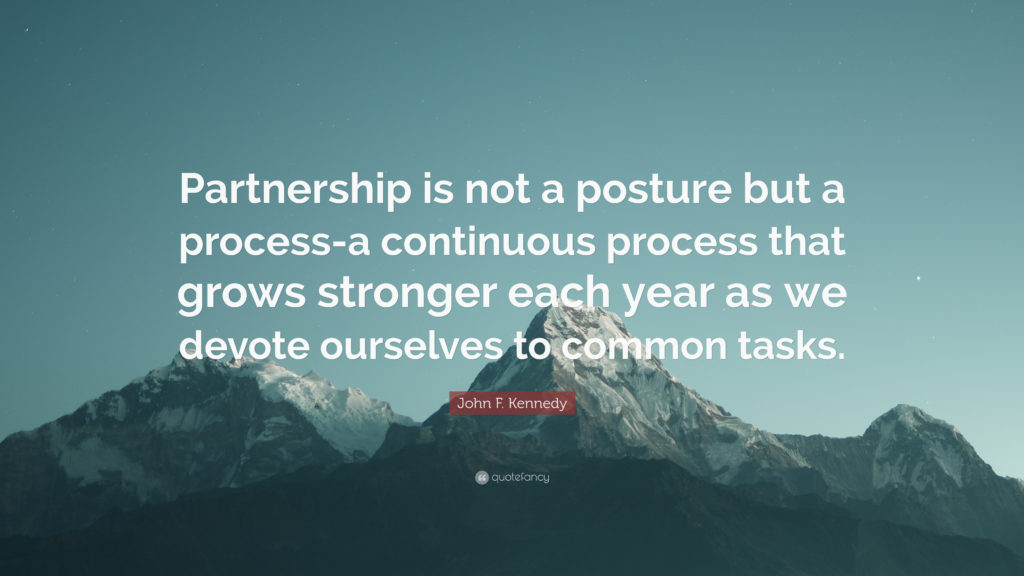
The kick off agreement
This is a template of Peer-Mentor.com kick off agreement signed between wannapreneurs/entrepreneurs and Peer-Mentor.
Though this is an agreement, it is written in first person, like an email, in an easy to understand (not in legalese). Though this is not the norm, this is right. Later, after the initial phase, the same agreement is signed again in hardcopy.
Background:
Peer-Mentor is a “co-founder as a service”. In a nutshell, Peer-Mentor i.e., I, Rohith, will play a dual role. When there is a task that the entrepreneur don’t know how go about, then I step in as a Peer, as a co-founder and execute the task till the entrepreneur is enabled. At other times, I act as a mentor. There are more details below.
In terms of investment and equity, we are similar to partnership. Many partnership firms have a sleeping partner (investor) and a working partner (executing partner). They split the profits based on prior understanding.
In our case, I act as a sleeping partner. Instead of investing money, I, as a peer will invest “effort” or “sweat”. I will take 5% of equity. Secondly, instead of splitting profits like other sleeping partners I will take 5% of your CTC.
With this as a background, entrepreneurs go through the document below.

Copy paste of the kick-off agreement:
Hi,
Congrats on starting your entrepreneurial journey. I wish you the best of luck!
Our scope of work will be in the field of “<>”.
“Peer-Mentor”: I will be a co-founder-working partner at times and a mentor-sleeping partner all other times.
- “Co-Founder-working partner”: Typically, I will be a co-founder-working partner when you don’t know how to do a task or when a task is being done for the first time. As a co-founder, I will have execution responsibilities.
- “Startup phase”: Once we address most of the unknowns, we will flag it as the end of “startup phase”.
- During the startup phase we will address the offering, pricing, market segment, unit economics and business model.
- We will execute all these in a low cost, low risk startup model that should be sustainable at every scale.
- Linearly scaling should help you get enough revenues to help you quit your job.
- At the end of the startup phase, you should be earning enough from this startup to quit your job.
- “Mentor-sleeping partner”: Post the startup phase, I will be a mentor + sleeping partner. Here, I will not have any execution responsibilities.
- Other responsibilities: Peer-Mentor will manage fire and execute the unknowns.
“Peer-Mentor Equity & license fee”: As a peer-mentor, my equity share will be 5% from now till series B funding or until the company is valued at 10Cr whichever comes earlier. Exiting or diluting before will be my sole discretion.
- We want to build businesses for the long run. We are not looking at the exit. Secondly, we will focus on profitability and not on funding. In this regard, we should not be looking at funding at all. In the ideal case, this series B clause would be a moot point.
- In funding, there are lots of rounds. The 1st round may be from friends and family. The 2nd round would be the seed stage. Till this stage, the company valuation is not well defined. The next round is Series A where we get serious investors. They assure the right value in series B. Hence, I prefer not to dilute my equity till series B.
“Peer-Mentor salary”: As a 5% owner of the company, I will take 5% of losses, 5% of your take home, CTC and benefits (salary either as co-founder-working partner or as mentor-sleeping partner and profits as dividends when it is issued).
- As a sleeping partner, I will have invested in the form of sweat equity or sweat capital. So, like any other sleeping partner, I will take 5% of what you take – instead of the typical 5% profit that a sleeping partner would take.
“Execution”: You will decide on the tasks that you want to pick up. You will also decide on the time you will need to complete the task. I will also do the same.
- You will also decide on a monetary fine that you will pay me if you miss the timeline/deadline. I will do the same.
- This is to make sure that you have motivation to complete the tasks and grow your company. Else if you are dropping and not making any progress then what I get for my time and involvement is these fines : )
- We will mutually agree upon a culture that will be necessary for this company. If we break it, we will pay the other a fine. This fine, unlike the previous fine, will be in terms of % of equity.
- Different businesses have to build different cultures and culture requirements. So it is important not to lose the culture after building it. Hence, here the fine is in terms of % of equity.
- Create asset – go live – fix it forever: Everyday you will take time to create an asset, go live the next day and fit the issues if any.
- This is to make sure that we keep the ball rolling everyday. Even if it is only a small step, we need to take one everyday.
- Failing to meet a customer commitment: If we commit a date to deliver to a customer, we have to meet it. If we fail, then the fine for subsequent failing will be 10 times the previous fine.
- In a startup, customers sign up only because of the trust we instill. Breaking commitments breaks trust. Hence, we have to be realistic and give the right timelines.
“On Abandon”: If you drop/abandon the entire journey then you will pay me 100 times the total amount in the “fine for missing the deadline” column.
- This is to make sure that you take this only if you are committed to this idea and will continue.
- On dropping out, all the assets and IP will be transferred to leftover team members according to their % holding. This is applicable to Peer-Mentor too.
- After dropping out, you will not operate in this domain for the next 3 years. This is applicable to Peer-Mentor too.
- Isn’t this clause one sided? Typically, the founder i.e., you/the founder will be working fulltime and starting up part-time. I am not working. So, the founder will lose nothing on quitting. I have committed time and given up on other opportunities. I am not earning. Hence, this clause is one sided.
- If Peer-Mentor quits, then the equity will be given back to the co-founder.
“On Failure”: it is very very common for startups to fail. There are too many reasons for failure. We will execute in low risk and low cost, so that on failure, we walk out without any material impact.
- Implosion: Most startups fail because of interpersonal issues. We have a plan to mitigate it.
- Timing: Timing is the most crucial success factor. We cannot anticipate the “right time to start”. So, if we start in a “wrong time” when the market is not ripe, it fails. Our approach is to have a low cost, low risk, sustainable at every scale, so that we stay alive for a long time the “right time comes up on its own”. Yes, we actually plan for luck.
- Top 10 reasons for failure are accounted for. We have methods to address them.
Finally, there is no failure if we have built a “sustainable at every scale”, there is only abandon (clause 5)
“Liabilities”: Either of the parties will not be liable to any damages caused directly or indirectly by each other, each others company/this venture, vendors or partners to each other, each other’s company/this venture, others customers, consumers, vendors or partners or anybody directly or indirectly associated with this venture.
- Post initial state, Peer-Mentor will not have execution responsibilities. So, it is difficult for me to have an understanding of liabilities.
- Peer-Mentor is like a sleeping partner. However, unlike other sleeping partners who invest capital, Peer-Mentor will invest sweat capital. Investors will not take liabilities. For e.g., if one buys stock in a company as an investor, will this trader be liable for the liabilities?
- What is of importance for the founder is to cover the liabilities. So, we will plan the business such that liabilities are passed on to customers/consumers or other service providers. As ours is a zero risk approach, we will inculcate risk mitigation and minimize liabilities right from beginning. As a founder you are protected.
“Related party transactions”: We will notify each other in “writing” all related 3rd party transactions.
- In India, it is typical to outsource work from one company to another company (either their own, their spouse, friend etc) and get personal benefits in return. This is not right. So, if we are working with a related party then we inform the other apriori.
“Exclusion and priority”: You should not be part of another startup, or take up an additional job, or volunteering and other large sustained time sinks besides your existing job without prior mutual concurrence.
- We are starting this as you are passionate about this space. If you are passionate about other startups or projects then you should rather be there : )
- Secondly, It is extremely difficult to run more than one startup and make them a success
- Taking additional new jobs will squeeze your time and focus.
- The priority for our startup should at least be equal to the priority of the primary task in your current job and never less.
“Marketing Peer-Mentor”: Website and marketing material will mention that this startup is incubated by peer-mentor. Peer-Mentor’s website will do the same.
“Peer-Mentor Principles”: We will follow the peer-mentor principles all through the life of this organization in spirit and word. Principles are listed in our website.
“Communication” : All interpersonal communication will be simple, open, honest & direct. Feedback will be in near real time. All important decisions and communication will be written and noted in email after verbal concurrence. Key interpersonal differences, expectations and issues will be logged in culture xls.
“Existing situation”: Please share your health, financial liabilities, and legal issues so we can plan the execution accordingly. If there is anything else to be shared that could have a material impact on the start-up, please share that too. On signing, I will share too.
“Ethics”: There will be no compromise on ethics and legal compliance at all points in this endeavour.
“Updating the document”: If we have to add anything to this document, we will discuss, concur and add.
“Legal jurisdiction”: will be Bangalore : D
So if you agree, please replace the “__________” below with your name on or before 7 days. Also get all the founders to sign up below.
To track the tasks, I have created a google doc sheet here. All tasks will be added and taken up after we mutually agree. In this regard, if we want to change the tasks, we will do it only after getting the consent of the other person.
Looking forward…
Founder: “__________”
Date:
Peer-Mentor: “__________”
Date:
Coming together is beginning, staying together is progress, and working together is success - Henry Ford .
